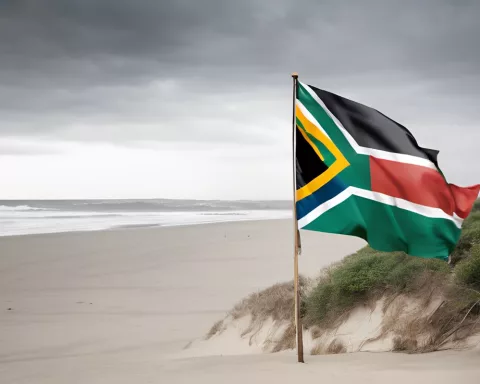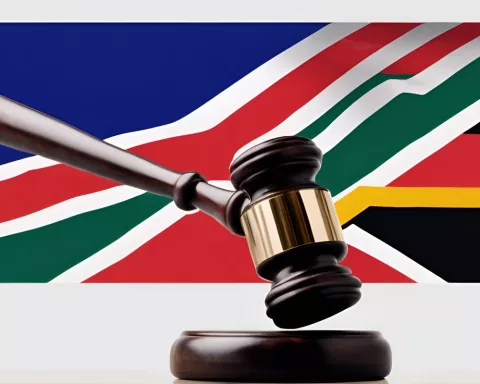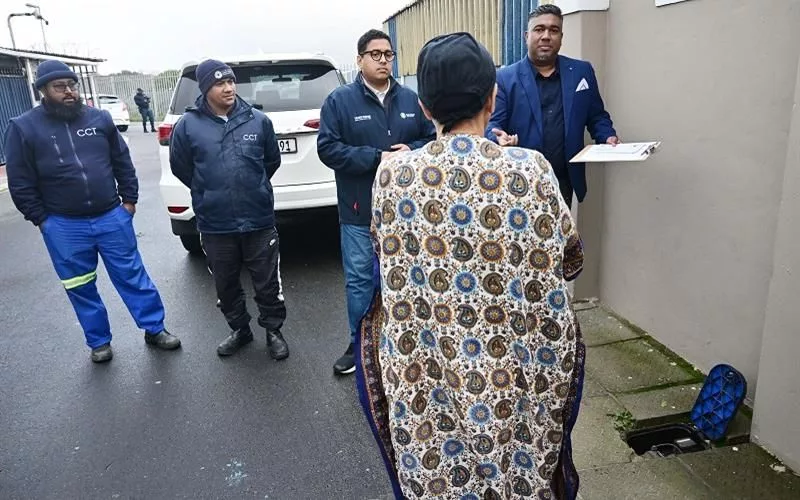The Miss South Africa controversy erupted when Chidimma Adetshina, a finalist with South African, Nigerian, and Mozambican roots, faced criticism on social media for her eligibility to represent South Africa in the pageant. The incident highlighted the ongoing struggle of diversity and national identity in the country. Despite the backlash, Adetshina’s story serves as a symbol of resilience and the vibrant multiculturalism that defines South Africa’s unique national identity.
What was the Miss South Africa controversy?
The Miss South Africa controversy was about finalist Chidimma Adetshina’s diverse heritage of South African, Nigerian, and Mozambican roots. Her eligibility to represent South Africa in the pageant was questioned on social media, highlighting the struggles of diversity and national identity in South Africa. Adetshina’s experience serves as a reminder of the cultural struggles that many individuals grapple with, living in a world that is inclined to box people into categories and erect boundaries.
The Miss South Africa Controversy
South Africa, a country known for its rich multicultural society, recently found itself embroiled in a controversy that highlighted the struggles of diversity. The controversy centered around the Miss South Africa (Miss SA) pageant and one of its finalists, Chidimma Adetshina. Adetshina’s heritage, which is a blend of South African, Nigerian, and Mozambican roots, stirred up a dramatic backlash on social media. This incident further exacerbated the ongoing debate about national identity and citizenship in the face of multiculturalism.
Chidimma Adetshina, a Johannesburg native, was no less a South African than anyone else born in the same city. However, the revelation that her parents hailed from other African nations triggered a storm of negative responses on social media. Adetshina, a model and law student, was suddenly at the center of a fierce debate about her eligibility to represent South Africa in the pageant due to her diverse heritage.
Defining Nationality
The striking aspect of this controversy was the public scrutiny of Adetshina’s nationality, despite her clear South African roots. As a fluent speaker of Zulu, Xhosa, and English, Adetshina was undoubtedly South African. Her response to the suggestion that she should participate in Miss Nigeria was pragmatic. She pointed out that her birth and life in South Africa did not make her any less a citizen, even though her father was Nigerian.
Adetshina’s predicament brought the intricate dynamics of citizenship into the limelight. As per South African law, citizenship can be acquired by birth, descent, or naturalisation. Therefore, as a child born to permanent residents within South Africa, Adetshina’s claim to South African citizenship could not be disputed.
In an interaction with The Sowetan, a distressed Adetshina expressed her disillusionment and pain over the negative remarks from her fellow countrymen. This incident served as a stark reminder of the cultural struggles that many individuals grapple with, living in a world that is inclined to box people into categories and erect boundaries.
The Tale of Triumph
Adetshina became the target of criticism primarily because of her diverse heritage, and the critics seemed to overlook the fact that diversity is fundamental to South Africa’s identity. Her experience, however, was not a solitary one. Vanessa Carreira, the Miss SA 2001 winner, who was born to Portuguese-Angolan parents in South Africa, faced similar challenges. Even so, she overcame this obstacle and won the crown, proving that nationality is more than just lineage, but also a sense of belonging to a place.
The controversy surrounding Chidimma Adetshina highlights the wider social challenges of xenophobia and the inflexible perceptions of nationality. Despite these struggles, her story is a testament to resilience. She is a symbol of South Africa’s vibrant multiculturalism, retaining her pride and sense of identity amidst the uproar. The true victory is not just in winning a crown, but in asserting one’s identity and challenging the outdated notions of nationality.
In her own words, “If it’s meant for me, God will do it for me. If not, it’s also not the end but the beginning of a great start”. Adetshina’s resilient spirit embodies the essence of being a South African, a fusion of various cultures, backgrounds, and histories that together constitute a unique national identity.
What is the significance of multiculturalism in South Africa?
Multiculturalism is fundamental to South Africa’s identity, with a rich history of diverse cultures, languages, and traditions. It is a source of strength and resilience, and the country’s unique national identity is defined by its vibrant multiculturalism.
How did Chidimma Adetshina respond to the criticism?
Chidimma Adetshina responded to the criticism with pragmatism, pointing out that her birth and life in South Africa made her a South African citizen despite her diverse heritage. She remained proud of her identity and resilient in the face of negativity.
Is Chidimma Adetshina eligible to represent South Africa in the Miss SA pageant?
Yes, Chidimma Adetshina is eligible to represent South Africa in the Miss SA pageant as she is a South African citizen by birth.
What is the wider social challenge highlighted by the controversy?
The controversy surrounding Chidimma Adetshina highlights the wider social challenges of xenophobia and inflexible perceptions of nationality, which can lead to discrimination and exclusion.
How have other individuals with diverse heritage fared in the Miss SA pageant?
Other individuals with diverse heritage have also faced challenges in the Miss SA pageant, such as Vanessa Carreira, the Miss SA 2001 winner, who was born to Portuguese-Angolan parents in South Africa. However, she overcame these obstacles and won the crown, proving that nationality is more than just lineage.
What does Chidimma Adetshina’s story symbolize?
Chidimma Adetshina’s story serves as a symbol of resilience and the vibrant multiculturalism that defines South Africa’s unique national identity. It is a reminder of the cultural struggles that many individuals grapple with, living in a world that is inclined to box people into categories and erect boundaries.












